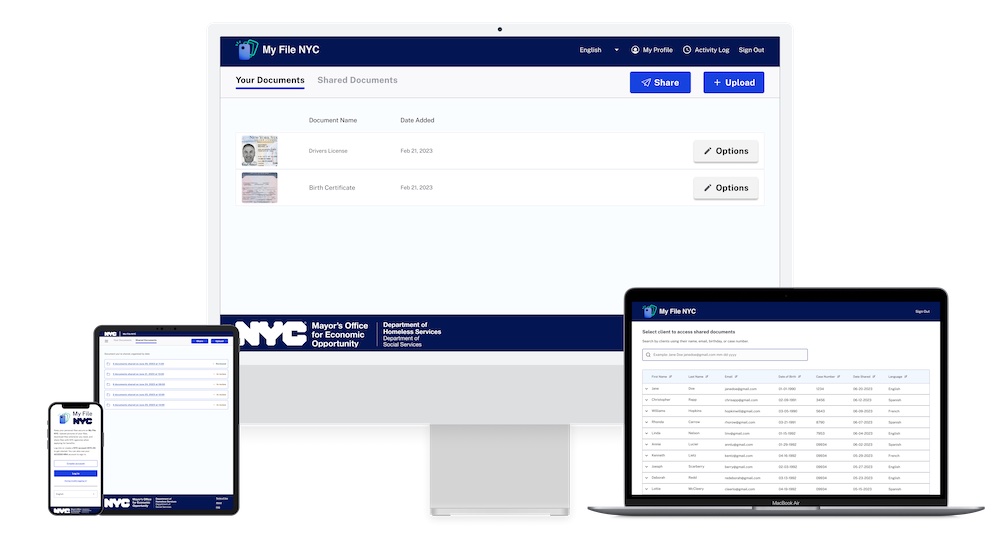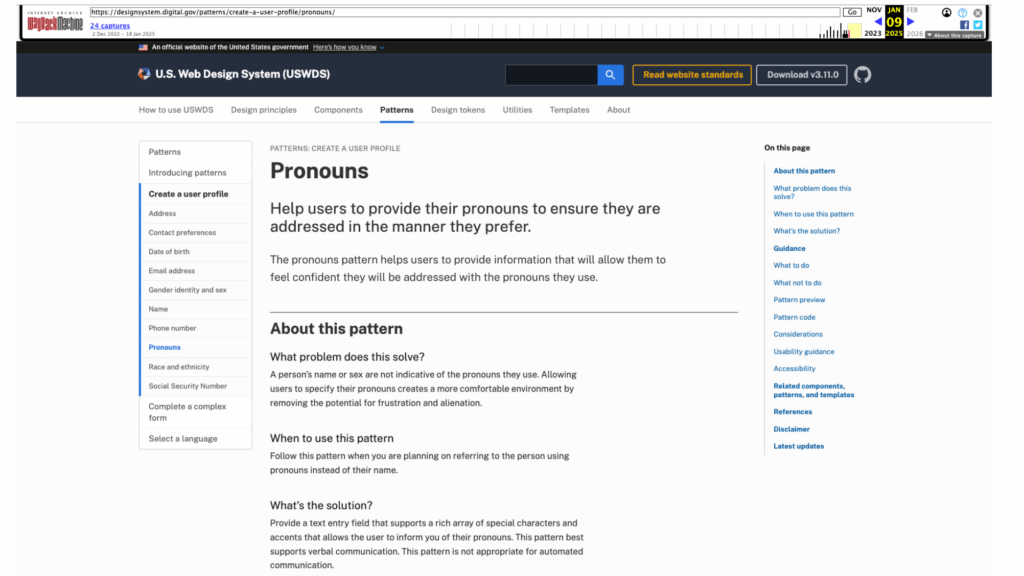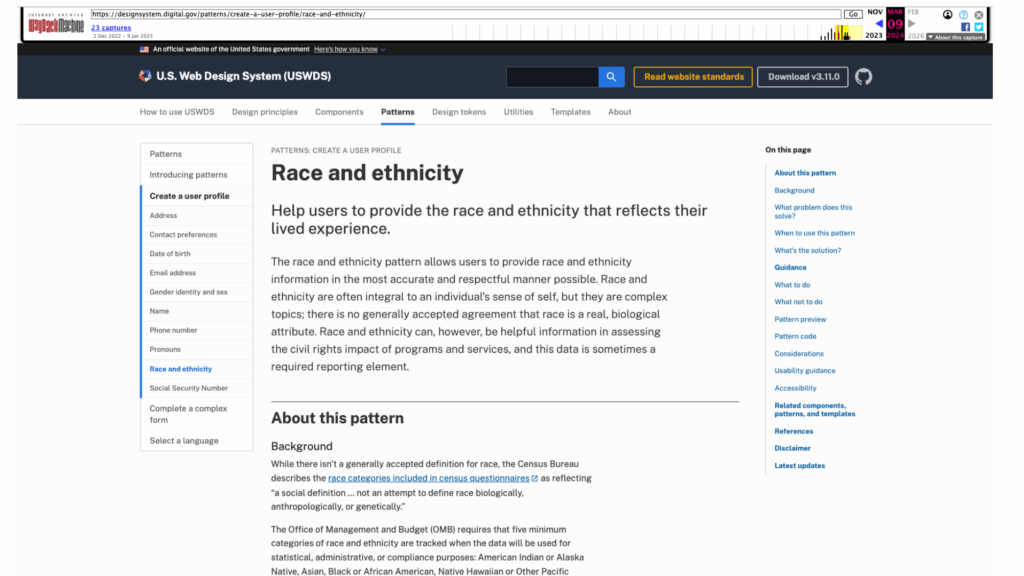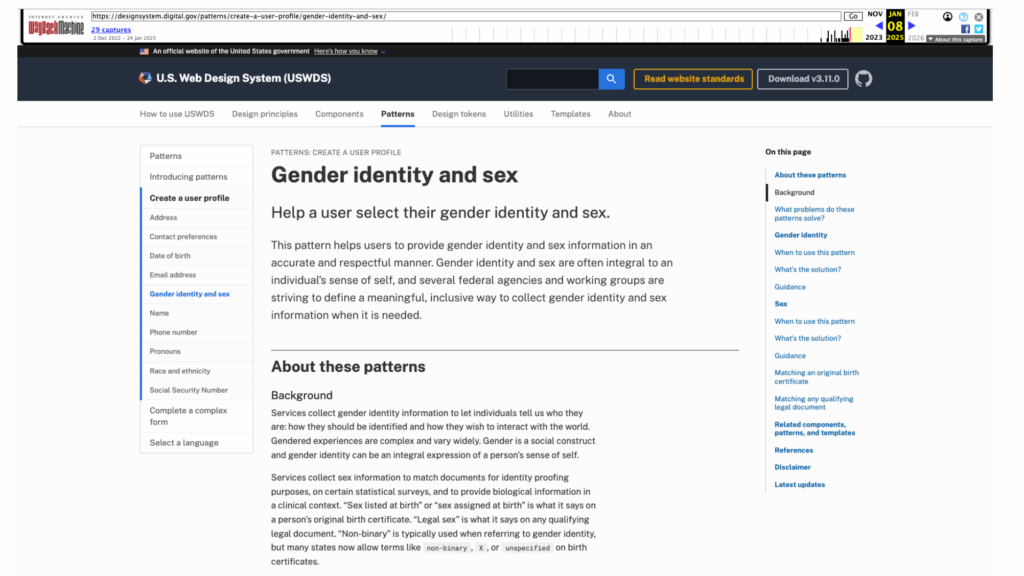Project Snapshot: MyFile NYC: Establishing Eligibility for Public Benefits Through Document Management Services
MyFile NYC is a digital platform that allows New York City residents experiencing homelessness to securely store, share, and manage vital documents with the Department of Homeless Services, streamlining the process of establishing eligibility for public benefits. This pilot, launched in 2022, aims to improve service access by reducing barriers like communication and documentation challenges, while allowing users control over their information.
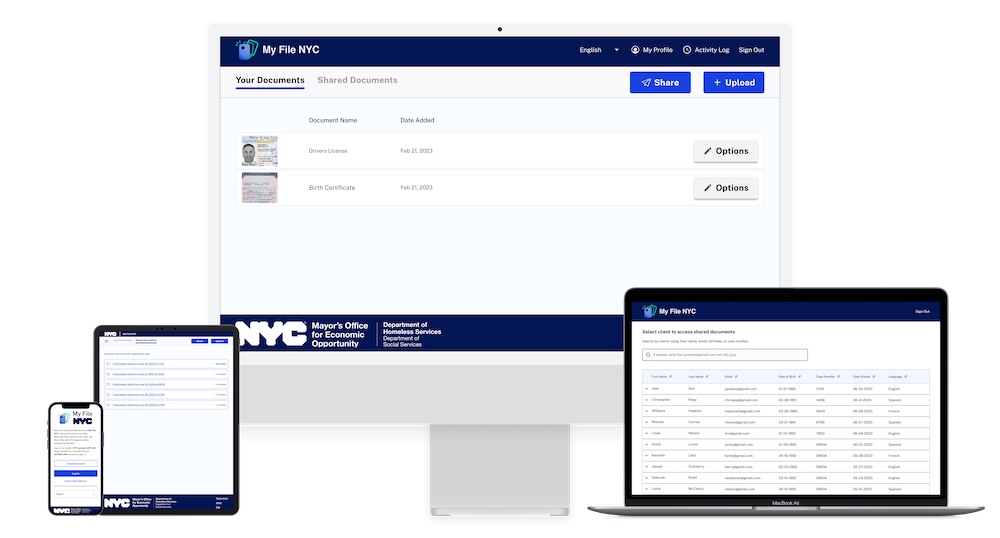
Problem Statement
Structural obstacles in communication, transportation, and documentation represent some of the biggest barriers to public benefit access for people experiencing homelessness. Unhoused individuals may lack a regular address where important documents and correspondence can be mailed, or may have difficulty applying for benefit programs because they lack documents that establish their eligibility, such as proof of income or identity. Centers and clinics where people can apply for benefits may also have limited capacity to accommodate applicants’ circumstances.
Project Description
MyFile NYC is a platform that allows New York City (NYC) residents to securely store, retrieve, and share vital documents with the Department of Homeless Services (DHS) in order to establish eligibility for public services and benefits. The platform launched as a pilot in NYC to assist families with children and individuals seeking help at the Prevention Assistance and Temporary Housing (PATH) center, managed by the DHS.
MyFile’s pilot launch followed years of work. In 2018, New America’s Digital Impact and Governance Initiative (DIGI) began working with the New York City Mayor’s Office for Economic Opportunity (NYC Opportunity) to explore how a document management service could alleviate some barriers to establishing eligibility for city services and public benefits. There was an MOU process between the City and New America followed by an RFP process. Despite complications resulting from the pandemic, the collaboration spent almost two years learning about the type of solutions that could best suit the needs of the residents and the city.
In the pilot of MyFile NYC, launched in August 2022, families seeking services at the PATH intake center were given the option of using MyFile to store and share documents that establish their eligibility for public services, like proof of identity or prior residence. Documents can be submitted one-by-one or in batches, after which they will be shared with PATH staff to review and process. Families receive confirmation that their documents have been sent, following which PATH staff follow-up with them through other mediums. The user retains control over the documents uploaded to MyFile and can choose to delete the documents at any time.
Piloting MyFile NYC for a few months in the summer of 2022 allowed the team to gather data and feedback from staff about their experiences with the document management tool. The team reported that staff found the tool useful during the pilot; however, the team also faced challenges implementing a new technology and process and quickly responding to feedback with a lean team. Following this initial pilot, the team has been working on updates to MyFile NYC’s usability and accessibility to ensure that the tool is easier to use and more intuitive. These updates include providing different language options and increasing the amount of documents a user can share at a time.
Throughout MyFile’s development process, a number of other cities reached out to DIGI with interest in learning more about the project and the potential to adapt the core code for their digital public infrastructures. For now, the NYC-focused collaboration is concentrating on continuing to pilot at the PATH Center and identifying other use-cases or city services that could use the system.
Project Outcomes and Impact
A publicly managed, digital solution that accounts for these complexities can promote a more informed, efficient, and effective provision of public services. MyFile NYC exemplifies how a relatively simple technological solution, like a document management service, could be deployed to make public services more accessible for people experiencing homelessness. Even though MyFile is used at just one step in the application process (establishing eligibility for certain programs), it fills a gap by providing a secure and reliable storage and information management service. Without such a service, individuals would have to make more journeys, speak with more people, and face greater obstacles to securing their documents in challenging circumstances.
Tools like MyFile can empower individuals to make informed choices about the documentation that they share, and the people that get access to their sensitive information. By making MyFile one option in the eligibility verification process, applicants also decide for themselves if this is a tool that they want to use.
Replicable Takeaways
DIGI & NYC Opportunity were determined to make MyFile an open, interoperable, and replicable service; it was important to avoid vendor lock-in and to promote the constant evolving of the service, informed by feedback from an initial pilot of the tool. This iterative development is continuing throughout MyFile’s relaunch and rollout.
MyFile is an example of a lightweight digital solution that can fill a large gap. While MyFile as a service is relatively straightforward, the process of arriving at an digital public good that complies with privacy standards, fits within the PATH center’s operational capacities, received support from government partners, and that is useful for potential users was lengthy and iterative, illustrating the need for inclusivity, engagement, and research throughout. To that end, multi-stakeholderism was crucial throughout the entire development process of MyFile; engineers, lawyers, designers, program managers, PATH staff, and many other stakeholders contributed expertise and experiences that informed the creation of the final product. The project is supported by the Rockefeller Foundation.
